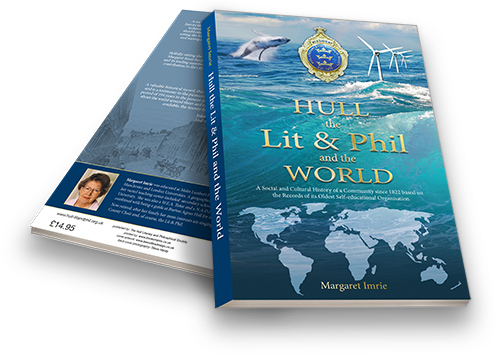
ABOUT the Hull Lit & Phil
The Hull Literary and Philosophical Society was founded in 1822, one of the many self-educational organisations of the same name that were springing up all over the country to meet the needs of an emerging urban middle-class.
A Brief History of the Hull Lit & Phil
From the start, besides a programme of regular meetings for members, it funded courses of lectures for the general public and also concerned itself with the social problems of the area, particularly housing, sanitation and health.
In 1854, after occupying various rented accommodation, the Society moved into its own home in the Royal Institution in Albion Street, ‘one of the finest buildings in Hull’. Towards the last quarter of the 19th century it became very involved with further education for the general population. It built and financed a teaching laboratory; by acquiring neighbouring property it provided classrooms for technical subjects and art and design; it sponsored a branch of the Cambridge University Extension Society,
and, at the beginning of the 20th century, its final project was the short-lived Hull and East Riding College of Music. Its museum became famous for its Saturday Afternoon Lectures to which many hundreds of people came each week. In 1902 this was handed over to the local authority as the city’s first Municipal Museum.
"Hull, the Lit & Phil, and the World"
SUMMARY
In a rapidly changing age of new discoveries and inventions, the Hull Literary and Philosophical Society was founded in 1822 with the aim of promoting literature and science amongst its members and, by public lectures, educating its fellow citizens. Based on the records of the society with cast list of hundreds ranging from civic leaders to caretakers, ships captains to captains of industry, doctors, lawyers, clerics, teachers, musicians, owners of businesses large and small, the life and character of Hull is revealed as an ever present backdrop to this unique social history.
Its educational campaigns and its efforts to improve the health and welfare of citizens as well as its major role in the foundation of many of the city’s cultural institutions were powerful components in its activities up until the First World War.
Today as a settled and orderly provider of weekly lectures, it is difficult to envisage the turbulent roller-coaster of the Society’s past with its warring personalities, financial crises, and the disastrous loss of its home, the Royal Institution, in the blitz of 1943.
It has however left visible legacies with the city’s Museums and Art gallery, which were formed and later transferred to Council ownership with its generous help at the beginning of the 20th century.

Book price £14.95
plus UK post and packaging £3.00
Contact:
Mr D. Grantham, 8 The Fairway, West Ella,
East Yorkshire, HU10 7SB
Tel: 01482 651843
info@hull-litandphil.org.uk
Book Reviews
A society that has survived and flourished for almost 200 years deserves a well-written history like this one. It takes us from its origins in 1822, when Hull was quite geographically isolated, and a small group of educated men believed that some of their opportunities should extend to others, through to its current success.
This book, though, does far more, setting the Society in the context of a community and its people with their fortunes waxing and waning as industries prospered and declined. It’s a fascinating and rewarding read.
Professor John R. Bennett
President of the Society 1987-88
Skilfully setting the story in the context of the broader intellectual and social life of Hull, Margaret Imrie has produced a fascinating and entertaining account of the Lit and Phil and its leading members. She demonstrates how the institution, by its historic pioneering contribution to the city’s cultural life, may have played a part in Hull becoming the UK City of Culture 2017.
Dr. David Neave
Life Fellow, University of Hull
A valuable historical record, this book explores the origins of Hull’s oldest cultural society, and is a testimony to the pioneering people who founded it and carried it forward over a period of 194 years to the present day. Born out of the desire of local people to learn more about the world around them and to share it in an age when little formal education was available, the Society filled a need then and still does today.
John Netherwood
Hull Civic Society
Mobile Exhibition
In July 2015 we commissioned a series of ‘Hull Lit & Phil History’ banners with the help of local design consultant Ian Goodison. The History Centre, on Freetown Way, Hull, kindly held an exhibition about the Society and displayed all six banners. With many illustrations, the banners reveal the remarkable story of our society from its foundation in November 1822 to the present day.
Accompanying the banners was a display of early Minute Books and other historical documents belonging to the Society.
If you know of a suitable future location where the banners can be displayed, please speak to a member of the society.
Useful links
Please let us know if you would like to add your group’s website to this page or if you have any other suggestions which would be suitable for inclusion.
Members only. Please click below to view the Charity Accounts for the year ending 31st March 2023

